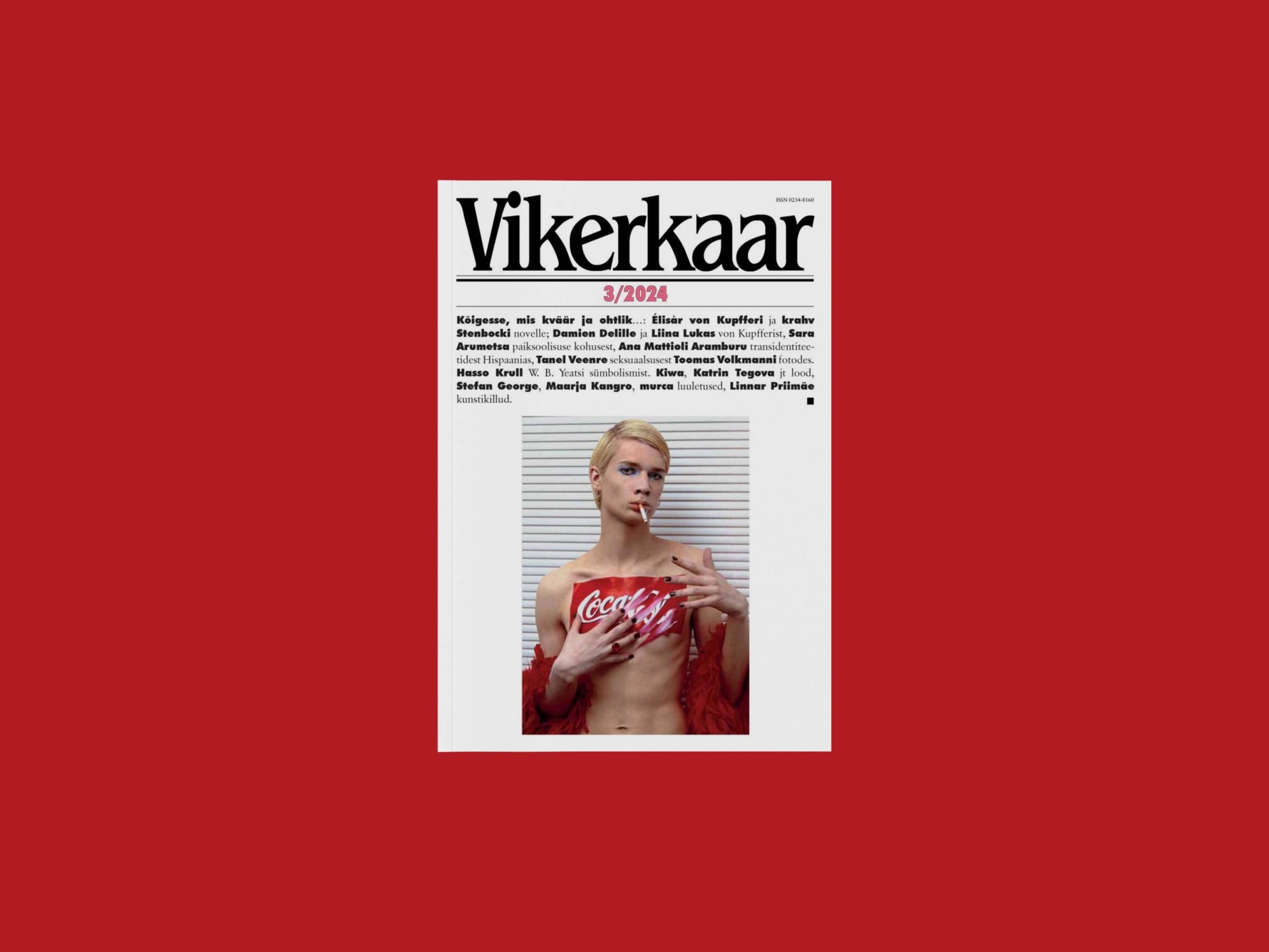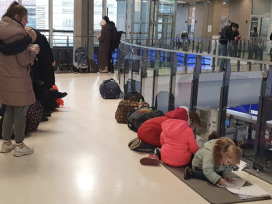
A leading Ukrainian-American writer on grace, justice, power and freedom.
Queer histories in Estonia(n): featuring 19th-century writing defying heteronormative expectations; why ‘cis-gender’ is a useless concept; Russian-speaking LGBT+ activism; and a history of trans rights in Spain.
Decadent, transgressive, colonial, queer – these are just some of the adjectives one could use to describe late-nineteenth-century Baltic-German literature. Vikerkaar’s latest issue on queer histories appears simultaneously with an exhibit of Baltic-German queer art at Tallinn’s KUMU Art Museum.
Artist Eric Stenbock, described by W.B. Yeats as a ‘scholar, connoisseur, drunkard, poet, pervert, most charming of men’, wrote short stories featuring vampires, travellers, gorgeous men and dying children that were as colourful as his personal life – all financed by the profits of his family’s extensive land holdings in Estonia.

Vikerkaar publishes stories by Stenbock about woman simultaneously in two marriages, a couple in a platonic yet fulfilling marriage, and other combinations that defy heteronormative expectations of love and sexuality. His writing, as Andreas Kalkun argues, fundamentally reshape queerness in Estonian literature, while raising complicated questions about the colonial relations that enabled nineteenth-century decadent literature.
Queerness glimpsed through allusions and references was also central to Elisar von Kuppfer’s identity. Following in Stenbock’s footsteps, Kuppfer sought to revitalize masculinity through art, literature and what Foucault would later come to call ‘practices of the self’. His works depict androgynous characters that celebrate the ‘harmony of health, youth and beauty’, and his writing explicitly deals with homosexual love. The story published in Vikerkaar follows a man engaged to a beautiful, yet boring woman, who finds himself in love with her brother instead.
Other essays in this issue consider intersectional questions in contemporary queer culture. Sara Arumetsa argues for retiring the term ‘cis-gendered’, which has become a contested, even offensive term in spaces inhabited by the likes of Elon Musk and J.K. Rowling.
‘Cis-genderedness’, Arumetsa argues, ‘is best described as a political regime or social and institutional norm, and transgressing it leads to disbelief, confusion, ridicule, lack of medical care, administrative and physical violence, and sometimes death … If we release people from the obligation of being cis-gendered, we would also release those who transgress against this obligation, from the secondary obligation of being transgendered.’
Pauliina Lukinmaa looks at Russian-speaking LGBTIQA+ activism in Estonia after Russia’s full-scale invasion of Ukraine. It is a mixed crowd, encompassing Russians born and raised in Estonia, as well as activists who fled St Petersburg for Tallinn in 2022. The picture Lukinmaa paints is of a diverse yet frustrated community, where exiles are both impressed by the integration of the local community into state institutions and angered by their apathy and lack of solidarity with communities abroad.
In the words of a queer comedian, Sasha Kapadia, Estonia’s LGBTIQA+ community is the victim of its privilege: Russian authorities ‘gave me false advertising! They told me how European gays wear golden leather pants and have crazy sex parties. Here in Estonia, people watch TV behind closed curtains. I’m going to where Putin’s propaganda is actually true. At least they like leather pants in Berlin!’
And, according to Ana Mattioli, struggle has been at the centre of the history of trans rights in Spain, ‘From the end of Franco’s dictatorship to the present day,’ writes Mattioli, ‘all trans narratives have been shot through with and reflective of class struggle. Even today, expressing a gender identity that departs from the norm brings about a risk for discrimination and social vulnerability. In other words, transitioning to a different gender generally also means transitioning to a lower-class position.’
Published 24 April 2024
Original in English
First published by Eurozine
© Eurozine
PDF/PRINTSubscribe to know what’s worth thinking about.

A leading Ukrainian-American writer on grace, justice, power and freedom.

Remaining in a new country or returning home? The Knowledgeable Youth podcast delves into the complex decision-making refugees face when migrating, together with researcher Olena Yermakova.